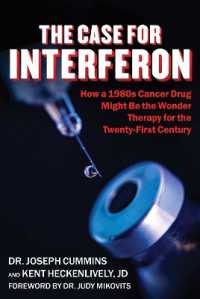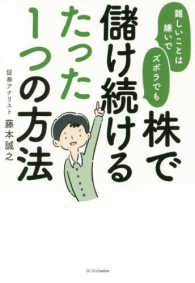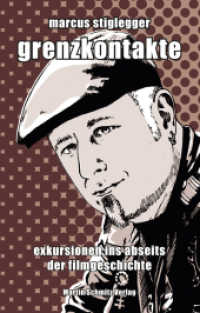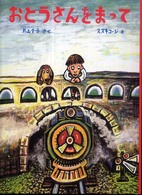Full Description
In Western culture, law is dominated by textual representation. Lawyers, academics and law students live and work in a textual world where the written word is law and law is interpreted largely within written and printed discourse. Is it possible, however, to understand and learn law differently? Could modes of knowing, feeling, memory and expectation commonly present in the Arts enable a deeper understanding of law's discourse and practice? If so, how might that work for students, lawyers and academics in the classroom, and in continuing professional development? Bringing together scholars, legal practitioners internationally from the fields of legal education, legal theory, theatre, architecture, visual and movement arts, this book is evidence of how the Arts can powerfully revitalize the theory and practice of legal education. Through discussion of theory and practice in the humanities and Arts, linked to practical examples of radical interventions, the chapters reveal how the Arts can transform educational practice and our view of its place in legal practice. Available in enhanced electronic format, the book complements The Moral Imagination and the Legal Life, also published by Ashgate.
Contents
Contents: Introduction, Zenon Bankowski, Maksymilian Del Mar and Paul Maharg; Part I General and Interdisciplinary Perspectives: Connectionism, moral cognition and collaborative problem solving, Andy Clark; Losing the plot: moving beyond text in educational practice, Anne Pirrie and James Benedict Brown; Physical literacy in legal education: understanding physical bodily experiences in the dance environment to inform thinking processes within legal education, Sophia Lycouris and Wendy Timmons. Part II The Arts and Law Schools: Playing games with law, Suzanne Bouclin, Gillian Calder and Sharon Cowan; From interpretive imagination to contingency in law: an argument for moving beyond text, Elaine Webster; Analysis and the arts, Nancy B. Rapoport; Mapping the lawscape: spatial law and the body, Andreas Philippopoulos- Mihalopoulos; The moving experience of legal education, Gary Watt; The battle of the precedents: reforming legal education in Mexico using computer assisted visualization, Panagia Voyatzis and Burkhard Schafer. Part III The Arts and Legal Professionals: Is 'beyond text' now within reach? Making a case for infusing the arts into the law firm experience, Valerie Fitch; Were you with me? Creativity, dialogue and self-expression in legal process narratives, Miriam Aziz; 'You are here': learning law, practice and professionalism in the academy, Karen Barton, John Garvey and Paul Maharg; Beyond the text: critique and creativity, Bruce Anderson and Kim Morgan; Index.








